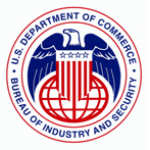 Last Friday BIS issued its new and final rule in the war of the iPods pursuant to which the U.S. has proposed to ban export of “luxury items” to North Korea. These sanctions were allegedly directed at the power elite of North Korea and sought to deny them access to Segway scooters, iPods, leather coats, plasma TVs and other luxury goods craved by the Pyongyang powerati.
Last Friday BIS issued its new and final rule in the war of the iPods pursuant to which the U.S. has proposed to ban export of “luxury items” to North Korea. These sanctions were allegedly directed at the power elite of North Korea and sought to deny them access to Segway scooters, iPods, leather coats, plasma TVs and other luxury goods craved by the Pyongyang powerati.
A provisional list of such items had been developed, and BIS was widely expected to refine that list and ban the export of items on the list to North Korea, particularly since lip service had been paid — unique in the sanctions arena — to a supposed desire not to do anything that would harm the ordinary people of North Korea since, clearly, they had suffered enough under the rule of their Divine Leader and his minions.
So, of course, it was more than a little surprising to see that the final rule adopted by BIS went far beyond what was expected and required a license not just for the luxury items but for all items exported to North Korea other than food and medicine. Luxury goods would be subject to a general policy of denial and non-luxury goods would be subject to a general policy of approval. Of course, non-luxury goods would now require the expense and delay of a license application. So much for those crocodile tears about the people of North Korea.
And rather than define luxury items, the new rule adopts the Justice Stewart Rule on Pornography — “I can’t define it but I know it when I see it.” The notice explicitly states that the list is “illustrative” and that “whether an item is a luxury good will be made on a case-by-case basis.” The rule goes far out on the limb by offering three (yes, only three) examples of things that aren’t luxury goods: “blankets, basic footwear [and] heating oil.” Whether an umbrella is a luxury item will be determined deep in the bowels of BIS if anyone tries to export them to Pyongyang.
(On a side note, what BIS Federal Register notice would be complete without an obvious error? In this instance, no one at BIS read the notice to catch bad cross references. So, the new Supplement No. 1 to Part 746 set forth in the notice says:
The following further amplifies the illustrative of list luxury goods set forth in § 746.4(c):
In fact, the illustrative list is in § 746.4(b)(1), not 746.4(c). This shouldn’t have been hard to check since § 746.4(b)(1) is on the same page as, and only a few inches away from, the erroneous cross-reference.)

 Posted by
Posted by  Category:
Category: 

 BIS issued the first anti-boycott penalty of the year last week to the
BIS issued the first anti-boycott penalty of the year last week to the  The Ninth Circuit Federal Court of Appeals in California yesterday
The Ninth Circuit Federal Court of Appeals in California yesterday  On Monday we
On Monday we  Last month BIS added a new entry to the
Last month BIS added a new entry to the 

